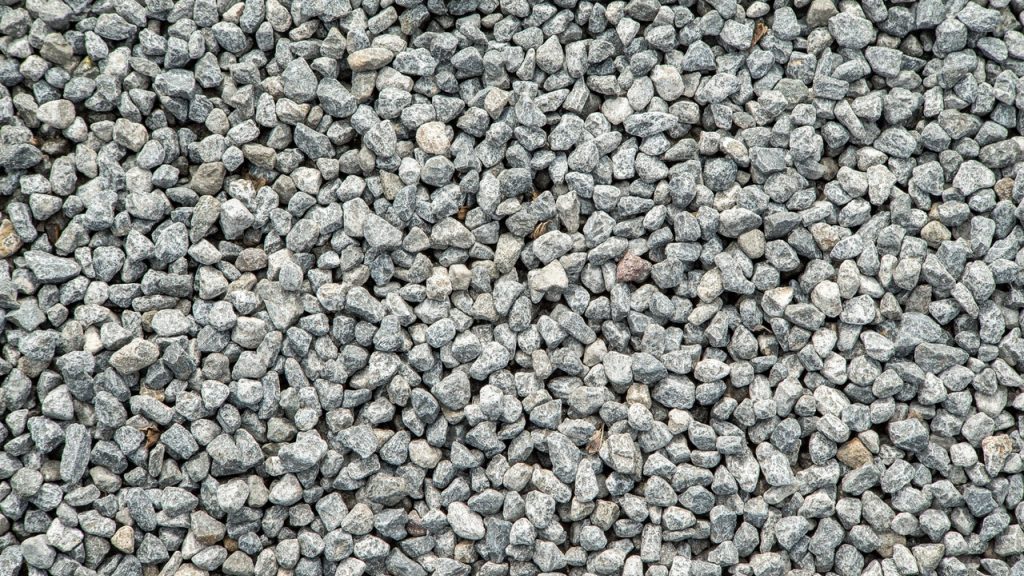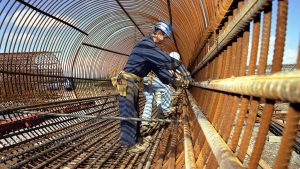Millions of tonnes of reusable asphalt and concrete aggregate is generated from roadbuilding and other construction projects across the province each year. Unfortunately, large volumes of the materials end up in landfills.
Although the products are recyclable when cleaned and processed correctly, the resources are not often reused by municipalities for road and infrastructure projects as many restrict the use of recycled aggregates.
The Toronto and Area Road Builders Association (TARBA) is hoping to change that. Its members are on a crusade to convince municipal councils to show environmental leadership and use more recycled aggregate.
“This thing, to me, is a no-brainer,” explains Rob Bradford, executive director of TARBA, which represents contractors doing new road construction and maintenance for Toronto and area municipalities, the Ministry of Transportation and private developers. “It’s like it’s somebody’s birthday and they don’t want the gift.
“But it’s a triple-win. The taxpayer wins because they get a cleaner environment, the contractor wins because they solve a problem that they’ve got right now in terms of stockpiled material, and the government wins because there’s environmental leadership. It doesn’t cost money. It can save money. So, why not?”
An independent research report commissioned by TARBA found Ontario’s largest municipalities have a long way to go before they can fully realize the benefits of increased use of recycled aggregate materials. The report highlighted the leaders and laggards when it comes to aggregate recycling in Ontario.
It was supported by industry associations such as the Residential and Civil Construction Alliance of Ontario, the Ontario Sewer and Watermain Construction Association and the Heavy Construction Association of Toronto.
While Ontario municipalities are the largest users of aggregate in the province, the report found many prohibit or severely limit the use of recycled aggregate for new roads and infrastructure and for municipal subdivisions.
Most large municipalities either do not allow or only allow partial use of recycled aggregate materials in the base and subbase for pavement, engineered fill and trench backfill materials, unpaved shoulders and fill under concrete slab.
The cities of Toronto, Cambridge and Markham emerged at the top of the list of municipalities that encourage the use of recycled aggregate materials, while Peel Region, Oshawa and Mississauga were at the bottom.
The research suggested there is room for growth and improvement by encouraging Ontario municipalities to examine their policies and find ways to realize the benefits of greater use of recycled materials.
Bradford said some municipalities have done a good job but the bulk of them have not and they’re not rethinking their policies, so it’s up to the province to lead the charge.
“We’ve got to convince the province that there’s got to be a provincial mandate and targets. That’s probably the only way it’s going to happen so that’s where we’re going next.
The province has had other priorities with COVID-19 over the last year or so, notes Bradford, but a dictated approach from Ontario seems to be the only option.
“We started focusing on the municipalities and trying to talk to them directly and trying to influence them directly and we’re getting no traction there.”
TARBA is pushing the cause because its members feel it is the right thing to do to protect the local environment, as reusing asphalt and aggregate will mean less virgin material will be required. However, some contractors also have small mountains of the materials in their yards and don’t know what to do with it.
“We see opportunity for huge environmental gains here and as a responsible organization we try to push that,” says Bradford. “But from a vested interest for our contractors, their yards are full of this stuff now, there’s mountains of it in the city. If you drive on the 401 past the airport, you’ll see mountains of this stuff.”
Many contractors have been storing the material in their yards, but they can’t take any more and have to turn it away so tons of it is going into landfills, says Bradford.
“You’re dumping rocks into a landfill. How much space are you taking up? And we know how hard it is to locate a new landfill. It makes zero sense to me to throw away a perfectly reusable, natural resource.”
Municipal and consulting engineers seem reluctant to embrace recycled aggregate and asphalt because specifying virgin material seems safer, Bradford says.
“That’s the concern,” he says. “It’s much easier and much safer to say, ‘No, we’re going to use virgin aggregate.’ To me, there’s no science behind it, there’s no technical argument about why you don’t use recycled aggregate, it’s all, ‘I’m not going to be the one that gets into that.’ That’s what I see a lot of out there.”
Recycled aggregate, for example, is engineered and processed to meet specifications, officially known as OPSS 1010 Materials Specification.
Bradford says it defies logic and common sense to be filling landfills with concrete and asphalt that can be reused.
“You’re picking banana peels out of the grey bin to put in the green one and we’re all going nuts and yet we could preserve over 30 million tons a year of virgin aggregate and stop it from going to landfill.”










We have been diligently trying to push this issue forward in the Okanogan, have made very little progress.
Would love to talk with someone and potentially get some added support. Thank you